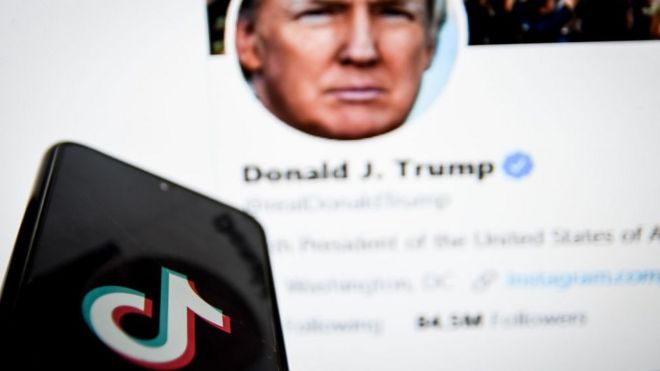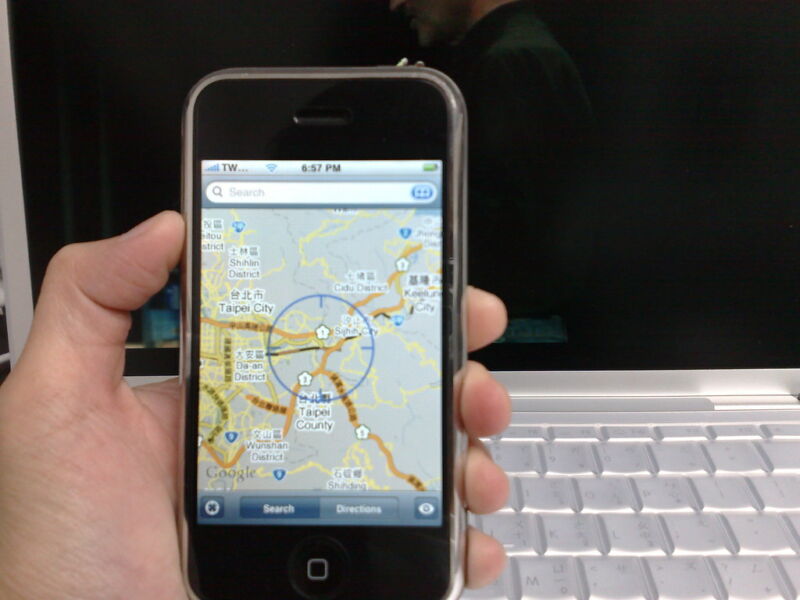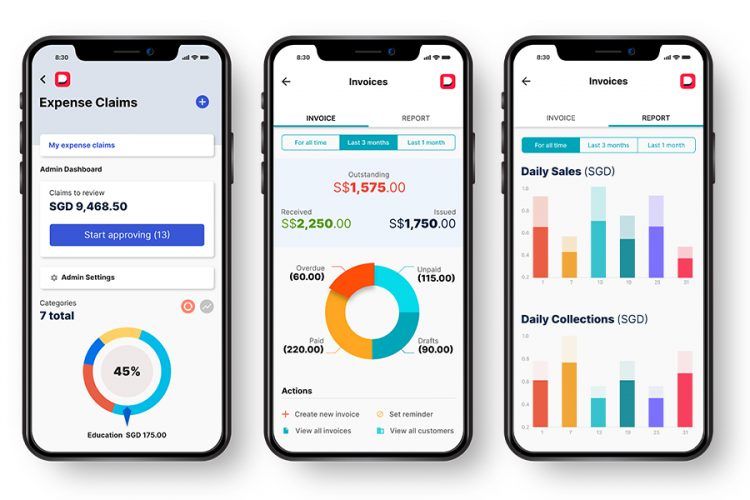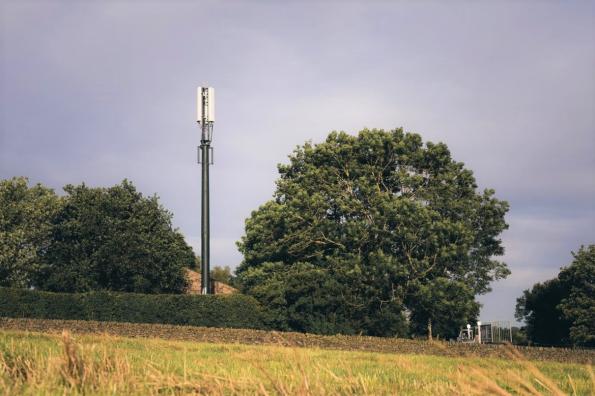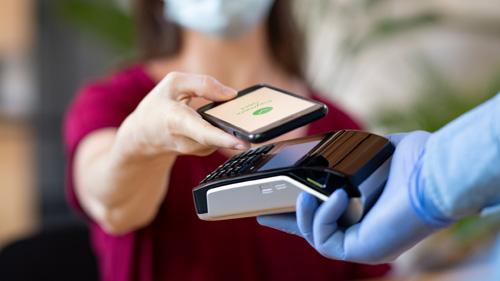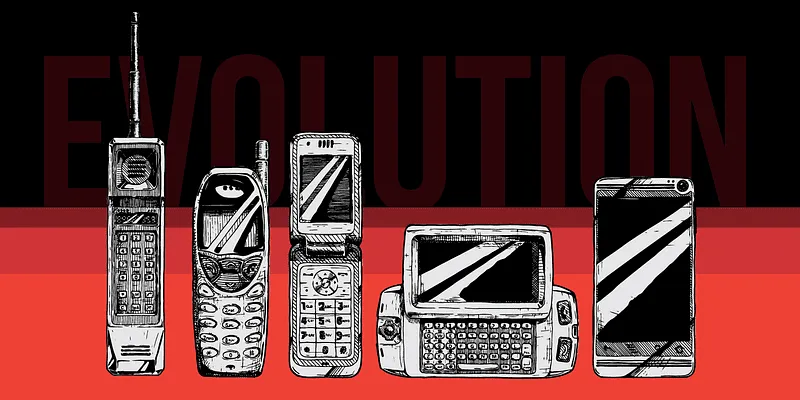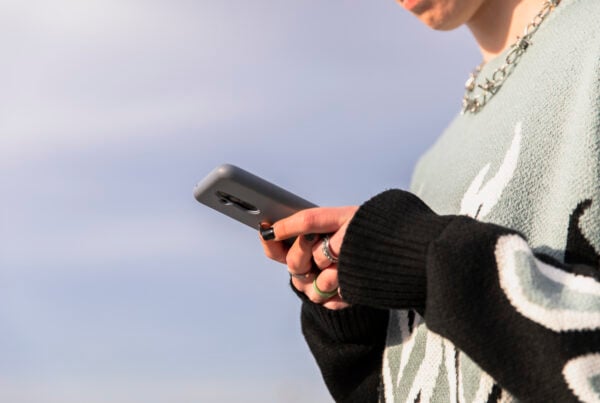Find out the week’s top mobile stories from around the world.
This week.. Trump says US firms must end links with TikTok and WeChat, beware find-my-phone, Wi-Fi, and Bluetooth, NSA tells mobile users, how mobile tech is easing the Covid-19 burden for the retail and logistics industry and much more…

Trump: US firms must end links with TikTok and WeChat
BBC
President Donald Trump has told US firms they have 45 days to stop doing business with TikTok and WeChat, claiming the Chinese apps are a threat to national security.
Mr Trump signed two executive orders targeting two of China’s biggest apps.
It is a major escalation in Washington’s stand-off with Beijing over its power in global technology.
Read more…
Beware of find-my-phone, Wi-Fi, and Bluetooth, NSA tells mobile users
Ars Technica
The National Security Agency is recommending that some government workers and people generally concerned about privacy turn off find-my-phone, Wi-Fi, and Bluetooth whenever those services are not needed, as well as limit location data usage by apps.
“Location data can be extremely valuable and must be protected,” an advisory published on Tuesday stated. “It can reveal details about the number of users in a location, user and supply movements, daily routines (user and organizational), and can expose otherwise unknown associations between users and locations.”
Read more…
Easing the Covid-19 burden: How mobile tech could be the answer for the retail and logistics industry
ITProPortal
There isn’t a single industry that remains unaffected by Covid-19. The closure of non-essential shops on the 26th of March, coupled with strict social distancing measures to slow the spread of the virus, has naturally caused a surge in online purchases and home deliveries during the lockdown. This, in turn, has inevitably put significant strain on the logistics industry to fulfil orders, while still taking the necessary safety precautions, thus decreasing worker efficiency. With most retailers pivoting their businesses to be able to continue sales online, adapting to the challenges and complexities of this has been difficult. And this struggle has been felt right across the board, not just for those who have not previously attempted home delivery.
Read more…
Could Digital Currencies Make Being Poor Less Costly?
Harvard Business Review
By definition, blockchain technology cuts out middlemen. In relying on networks of users and collective trust, it reduces the need for centralized networks and data storage. This trait made blockchain-powered currencies popular on shadowy parts of the internet, but it has the potential to do something more revolutionary than obscure how money is changing hands: Blockchain-based payment systems can bring the more than 1.7 billion people who are unbanked or underbanked (including 25% of U.S. households), into the formal economy. And in doing so, they can render obsolete the expensive, usurious payment and informal financial services those people use to make ends meet. A generational pandemic makes this challenge all the more urgent, as decades of (admittedly uneven) economic progress are erased.
Read more…
Is integrating mobile and web apps the future for SaaS firms?
Tech In Asia
The new frontier for enterprise software as a service (SaaS) providers appears to be in mobile apps. From cloud storage services like Dropbox to video conferencing tools like Zoom, the number of SaaS mobile apps on the market is on the rise.
Almost all the software that enterprises use to manage their businesses and work effectively are available on mobile devices, giving workers greater flexibility and access to whatever they need, whenever they need it.
Read more…
700MHz UK spectrum auction opens up 5G cellular IoT
EE News
The UK’s radio regulator Ofcom has today confirmed plans to auction spectrum in the 700MHz band in January as well as the 3.8GHz band, increasing overall capacity by 18 percent
The sub-GHz band allows lower power links with longer range. With the lower latency of 5G protocols, this is well suited to applications in the Internet of Things (IoT) and Machine to Machine (M2M) links as well as more coverage in rural areas.
“Demand for getting online on the move is soaring, and the pandemic has only increased the importance of mobile services to people and businesses. Releasing these airwaves promptly will bring a much-needed capacity boost, helping mobile customers get a better service,” said Philip Marnick, Ofcom’s Spectrum Group Director.
Read more…
Consumers Embrace Contactless & Mobile Payments During COVID-19 Pandemic
Convenience Store
In a bid to keep safe and healthy during the novel coronavirus crisis, consumers’ shifting behaviors include how they pay at retail.
New research by the National Retail Federation (NRF) and Forrester shows the of use of mobile payments and contactless credit or debit cards increased in the past few months as the United States grappled with the COVID-19 pandemic.
Read more…
25 years of mobile phones: India’s journey to becoming world’s second-largest smartphone market
Your Story
Would you pay roughly Rs 4,900 for a prepaid SIM at a call rate of Rs 17 per minute for incoming and outgoing? Sounds almost absurd, considering India has one of the lowest call tariffs in the world. But if you owned a mobile phone in 1995, these were the rates you would have to pay. That year, exactly 25 years ago from today, the first-ever mobile phone call was made in India when West Bengal Chief Minister Jyoti Basu, sitting in The Writer’s Building in Kolkata, spoke to Union Telecom Minister Sukh Ram at Sanchar Bhavan in New Delhi.
Read more…
The Samsung Galaxy Note 20 with Xbox Games Pass is mobile gaming’s big breakout moment
Tech Radar
The first-ever virtual Samsung Galaxy Unpacked event revealed a handful of eagerly-anticipated phones and wearables, but the most understated news was the partnership between Samsung and Microsoft to bring Xbox games to the flagship phones like the new Galaxy Note 20.
Powerful Samsung phones will support Xbox Games Pass and xCloud streaming, and that has gotten me more hyped for mobile gaming than anything before today, even Google Stadia – in short, it has much of the same ambition as Google’s service with more follow through.

